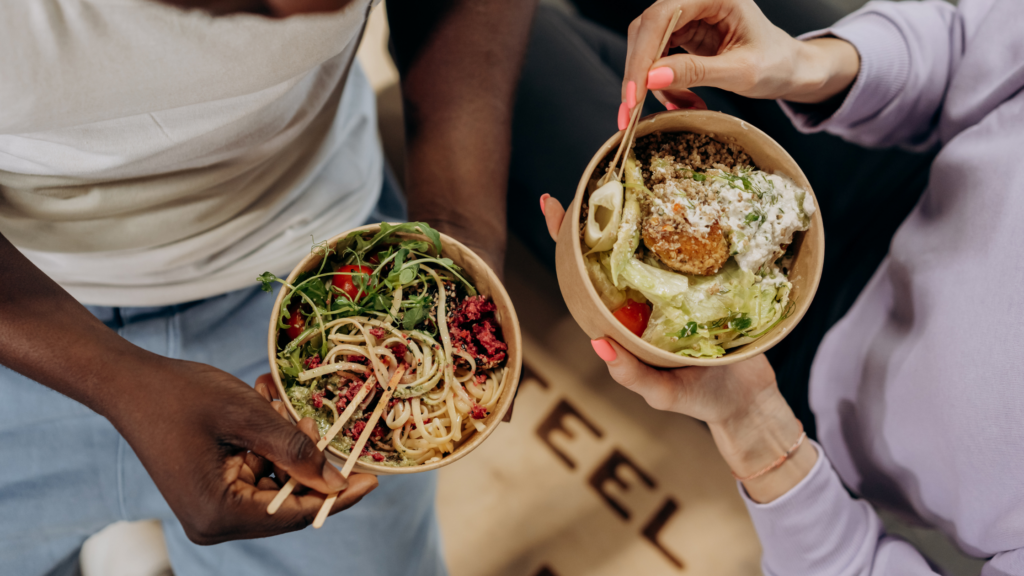As a registered dietitian, I help clients heal their relationship with food through intuitive eating—a compassionate, evidence-based approach that rejects diet culture and embraces body wisdom. If you’re tired of restrictive rules, guilt around eating, or struggling with body dysmorphia, this might be your path to freedom.
Intuitive eating is not another diet—it’s a lifelong practice of tuning into your body’s needs. Just as a thermostat automatically adjusts to maintain room temperature, your body uses complex neuroendocrine signals—like ghrelin (hunger hormone), leptin (satiety hormone), and cholecystokinin (CCK)—to regulate food intake naturally. By honoring these biological cues rather than external diet rules, you support metabolic health and sustainable eating patterns.
Why should you try intuitive eating?
Research analyzing over 50 studies reveals powerful evidence about intuitive eating’s benefits:
- Fewer eating disorders and body image struggles (29-58% lower rates)
- Higher self-esteem and life satisfaction (20-58% improvements)
- Better overall mental health

Food shouldn’t feel like a battle—yet for so many of us, it does. If you’ve ever found yourself staring at a menu paralyzed by guilt, or finishing a meal only to immediately regret it, you know exactly what I mean.
Intuitive eating works like therapy for your food habits– this is how:
It Quiets the Food Police in Your Head
Those relentless thoughts (“I shouldn’t eat this,” “I’ll burn it off later”)? They’re diet culture talking. Intuitive eating helps you recognize these thoughts as learned rules—not truths.
It Reconnects You With Your Body’s Language
Years of dieting can make hunger and fullness cues feel like a foreign language. Intuitive eating helps you to notice physical hunger signals (stomach growling, low energy), identify comfortable fullness, and distinguish emotional hunger from physical needs.
It Turns Fear Foods Back Into Just… Foods
Restricting food creates guilt, not guidance. Labeling foods as “bad” makes you feel shame for eating them, which often leads to cycles of restriction → craving → overeating → guilt. Remember– a food isn’t inherently good or bad—it’s about how it fits into your overall diet
Like any relationship repair, this takes time. But the breakthroughs are powerful–your body feels respected, having what it really needs.
If you have any other questions, you can schedule a free 15-min consultation for more information.
References:
1Linardon, J., Tylka, T. L., & Fuller‐Tyszkiewicz, M. (2021). Intuitive eating and its psychological correlates: A meta‐analysis. International Journal of Eating Disorders, 54(7), 1073–1098. https://doi.org/10.1002/eat.23509
2Polivy, J. (1996). Psychological consequences of food restriction. Journal of the American Dietetic Association, 96(6), 589–592. https://doi.org/10.1016/s0002-8223(96)00161-7


